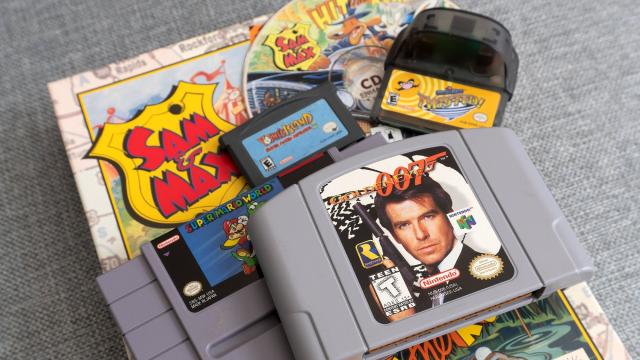Replaying the favourite video games of your youth isn’t as easy as re-reading a loved book or re-watching a movie you’ve already seen 100 times. And Phil Spencer, Microsoft’s Executive Vice President of Gaming, thinks that’s a problem the games industry needs to address by embracing emulation with open arms.
Books are arguably one of the most persevering mediums because the same copy you read as a kid can be enjoyed again and again as you grow older. Movies, TV shows, and music start to exhibit the problems with relying on technology for media consumption. Trying to listen to an audio cassette, or watching a VHS tape, 20 years later isn’t as easy unless you’ve still got a functional cassette player and VCR kicking around. Thankfully, those industries typically embrace every new technology that comes along and re-release that content again and again on different formats. Having to buy your favourite movies, again and again, isn’t ideal, but you could always find a copy of Star Wars, for example, as the industry transitioned from VHS to DVD to Blu-ray to streaming delivery. (Of course, you weren’t guaranteed to find the original cut.)
The video game industry has been nowhere near as accommodating as technology marches on. Unless you maintain a collection of classic hardware for playing original copies of games, trying to access those titles on newer consoles and gaming machines is hit or miss. Microsoft’s latest-generation consoles use a technique called emulation (software that can play older games by pretending to be older hardware) to play old Xbox 360 and original Xbox titles, as does Nintendo through the Switch’s online service which now lets the handheld console play NES, SNES, N64, and even classic Sega games.
But the selection of emulated games you can play on these modern systems is small and limited to the more popular titles of past decades. If you want to revisit lesser-known games there’s no shortage of stand-alone emulators available for Android-powered mobile devices, PCs, streaming boxes, and even built right into handheld consoles. But finding and using the necessary game files themselves, known as ROMs, is a murky legal grey area. Companies like Nintendo are especially unfriendly to this approach, often using legal means to take down websites hosting classic video game ROM files, and that’s what Phil Spencer wants to see change.
He’s not advocating for video game companies to release all of their classic games on the internet for free and pretend like copyrights and trademarks don’t exist, but for all of the rights holders to instead embrace an industry-wide approach to emulation where every modern console would potentially be able to play thousands of classic games. Access wouldn’t necessarily be free, but in the same way that classic movies and TV shows can be enjoyed on many modern consoles and devices through the Netflix app, a similar streaming service could be implemented that allows gamers interested in retro titles pay to have access to them.
The approach might not make as much money as releasing a couple of retro games on a dedicated handheld every year does, but it would still be profitable for developers and publishers if everyone just came together and settled on an emulation strategy. More importantly, it would help preserve the rich history of gaming and make it accessible to an ever-growing fanbase. Some of the greatest filmmakers of our time are also film enthusiasts who were influenced by the work of directors that came before them, and making older games more easily available will only help to make what the industry produces in the future even stronger.
Editor’s Note: Release dates within this article are based in the U.S., but will be updated with local Australian dates as soon as we know more.
